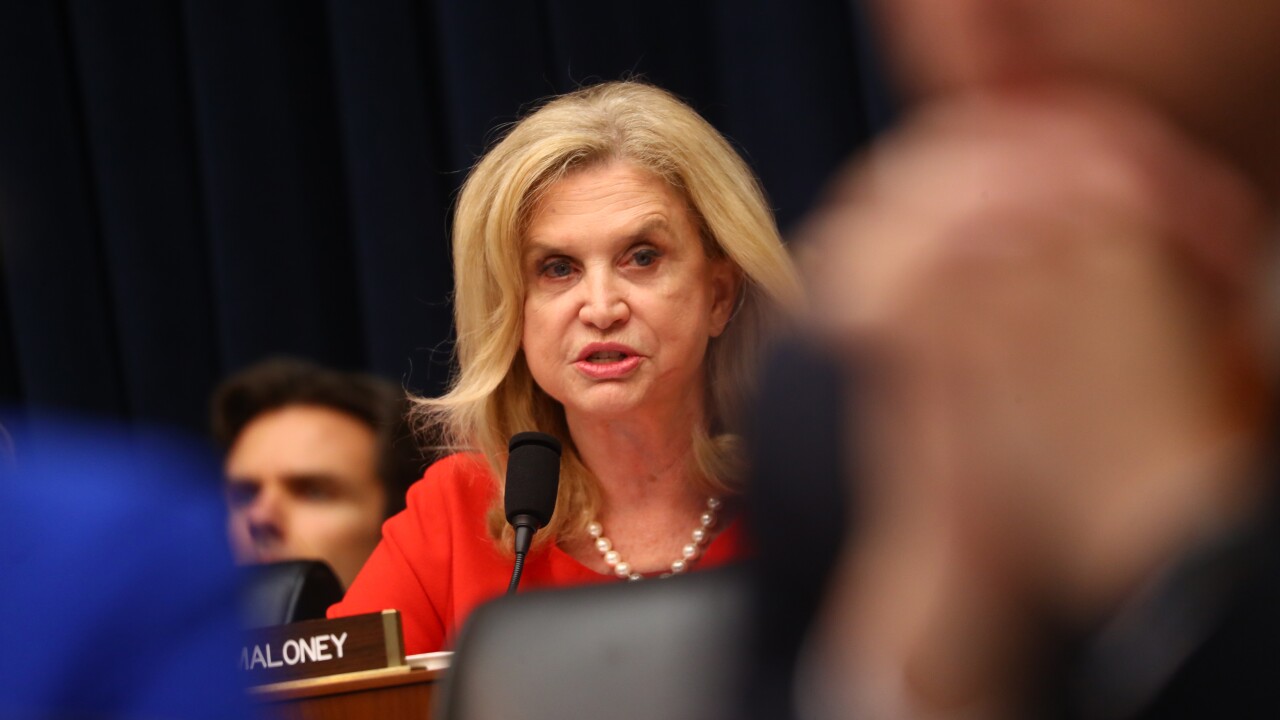-
The Massachusetts bank is being accused of aiding and abetting the operation of a Ponzi scheme centered in Hamilton, New York. The bank declined to comment on the allegations.
September 12 -
-
-
Financial institutions spent nearly $214 billion last year — an 18% jump from 2019 — to meet regulatory requirements for fighting financial crimes, a new study says. The spending included more staffing to manage risks posed by customer growth.
June 9 -
As Fincen implements an anti-money-laundering law requiring businesses to add their beneficial owners to a new database, bankers worry they'll still be on the hook to provide that information on behalf of customers for some time.
April 12 -
Congress's enactment of the defense spending bill opposed by the White House removes the final hurdle for a key anti-money-laundering provision.
January 2 -
A defense spending package includes a measure requiring new businesses to report their beneficial owners directly to the Financial Crimes Enforcement Network, shifting the burden away from banks.
December 9 -
Banks are responsible for reporting their business customers' beneficial owners, but a bill that would shift that anti-money-laundering duty to businesses themselves has been added to a must-pass defense spending package.
November 20 -
A key Democrat on the House Financial Services Committee, Rep. Carolyn Maloney has a slim lead over a primary challenger, Suraj Patel, a progressive political activist and New York University professor.
June 24 -
A key Democrat on the House Financial Services Committee, Rep. Carolyn Maloney has a slim lead over a primary challenger, Suraj Patel, a progressive political activist and New York University professor.
June 24 -
A trade group says suspending so-called beneficial owner rules would help financial institutions make more small-business loans through the Paycheck Protection Program.
April 14 -
Few lenders are finding creative ways to provide much-needed financial advice and emergency services online.
April 6 SigFig
SigFig -
MyCUID, an identity-verification tool launched in early 2018, has a new identity of its own.
February 5 -
The American Bankers Association said it’s offering a new online course because of increased demand by members for training tailored to banking.
January 30 -
Payments messaging standards provider Swift has opened its global Know Your Customer registry to all the corporations it connects to following a successful test.
December 16 -
Former T. Rowe Price portfolio manager Henry Ellenbogen is making Rapyd his first bet.
December 3 -
The 2020 elections and a potential new chair of the Senate Banking Committee in the next Congress could put a deadline on passage of a bill to ease a key anti-money-laundering requirement for banks.
November 28 -
Beneficial-ownership legislation is within the banking industry’s reach, but the prospect of new regulatory burdens for small businesses is forcing lawmakers to choose sides.
October 28 -
The Corporate Transparency Act would require companies to report their true owners to the Financial Crimes Enforcement Network, removing the burden of financial institutions to collect beneficial ownership information about their clients.
October 23 -
The Corporate Transparency Act would require companies to report their true owners to the Financial Crimes Enforcement Network, removing the burden of banks to collect beneficial ownership information about their clients.
October 22













